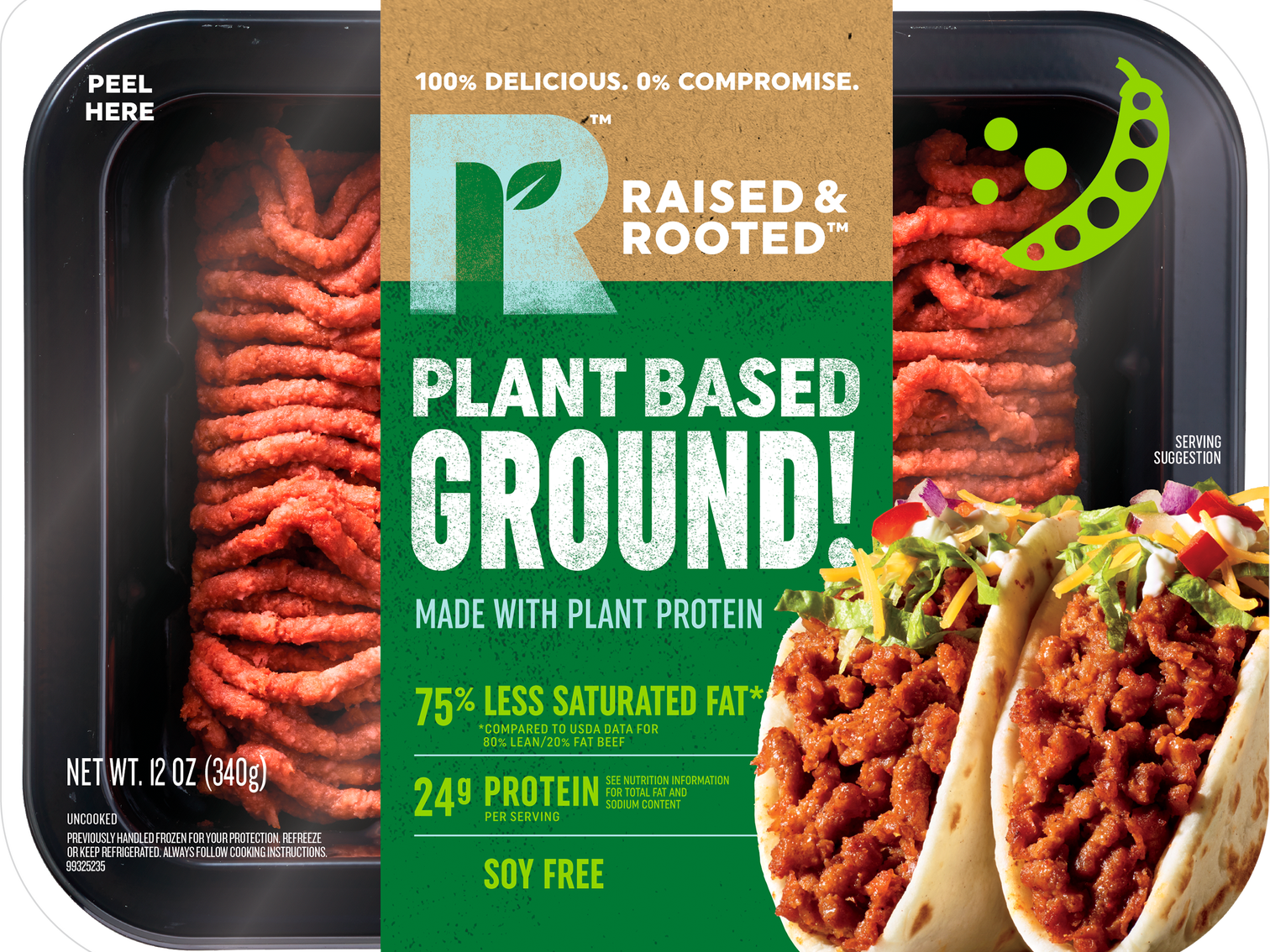
Tyson Foods
- Tyson Foods is adding burgers, sausages, and grounds to its Raised & Rooted plant-based brand.
- The brand dropped products that were a mix of plant- and animal-based ingredients last year.
- Raised & Rooted is trying to take on rivals like Impossible and Beyond, including on price.
- See more stories on Insider's business page.
One of the world's biggest meat companies is moving further into the plant-based world.
Tyson Foods is adding burger patties, sausages, and grounds to its Raised & Rooted plant-based brand, the company said Monday. The products will appear on shelves at US retailers near products from rivals including Beyond Meat and Impossible Foods.
David Ervin, Tyson's vice president of marketing, emerging proteins, told Insider that the Raised & Rooted products have more protein than competing products and are similarly priced. A two-pack of Raised & Rooted burgers, for instance, will retail for $4.99, right at a common price point for two Beyond Burger patties.
Plant-based meats remain more expensive than their animal-based equivalents, though major plant-based protein producers have said they want to change that over time.
Tyson launched the Raised & Rooted brand in 2019. Initially, the lineup contained both completely plant-based items as well as products that were a mix of plant-based and animal-based ingredients, such as burgers made from Angus beef and pea protein. It also sold nuggets that used pea, bamboo, and flaxseed instead of chicken meat but contained egg whites.
Some consumers, including vegans and plant-based advocates, argued after their release that Tyson was misleading consumers by marketing the blended burgers and egg white nuggets as part of a "plant-based" product line even though they contained animal products. "Tyson has taken the phrase 'plant-based' - which means 'contains only plants' - and co-opted it to mean 'contains plants,'" Brian Kateman, president and co-founder of the Reducetarian Foundation, wrote in Entrepreneur in 2019.
Arkansas-based Tyson discontinued the blended burger and removed egg whites from its nuggets at the end of last year, and the brand's products are now 100% plant-based, Ervin said. "We wanted to stay on-point with one message," he added, saying that blended products likely require a different, clearly promoted space on supermarket shelves apart from entirely plant-based options.
But Tyson hasn't given up on the idea of part-meat, part-plant products, he said. "I have heart for blended items," Ervin said. "It is an area that we'll continue to explore and look at, and we'll bring out those products when it makes sense."
Big meat producers have gotten on the alternative meat wagon with M&A and investments. Brazil-based JBS, the world's largest meat supplier, said last week that it would acquire Dutch plant-based meat startup for €341 million ($408 million). And besides Raised & Rooted, Tyson has investments in plant-based seafood maker New Wave Foods and cell-based meat company Memphis Meats.
A Tyson spokeswoman declined to say what percentage of total company sales plant-based items represent, but added that they are "a small part of our business, but growing."
For Tyson, plant-based products like the new burgers, grounds, and sausages are a chance to increase protein consumption, Ervin said. "People are swapping out other meals, like carb-based or vegetable meals, and actually replacing them with higher protein," Ervin said. Tyson executives have also pointed to increased protein consumption around the world as an opportunity for the company to grow sales, especially in parts of the globe where populations are expanding and demand for protein is increasing.
Asked whether a goal of Tyson's plant-based offerings is to replace meat consumption over time, Ervin said: "It's about giving consumers choice."